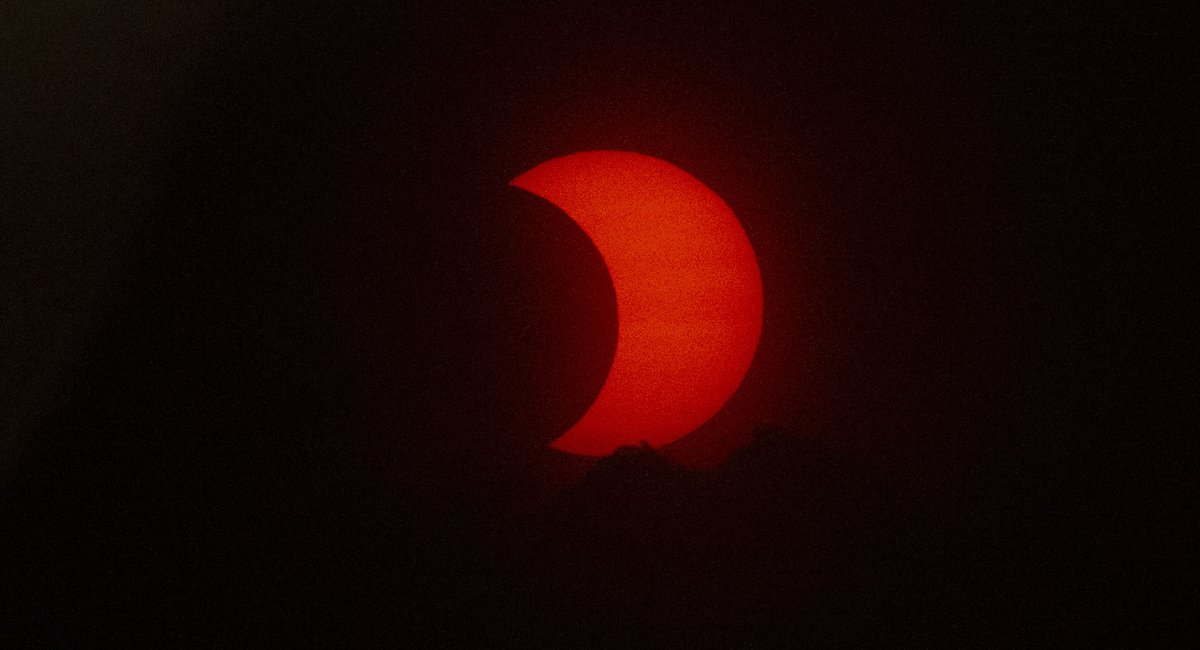Towns in upstate New York that fall within the path of total darkness on Monday’s eclipse are preparing for hordes of spectators unlike anything they’ve experienced in recent memory.
“We’ve had meetings for months and months and been doing all the preparation we can,” Watertown Police Chief Charles Donoghue told Gothamist over the weekend. “But, until it really comes to Monday, we’re not going to know what’s going to actually happen.”
Watertown, which is a town of 24,000 located just 30 miles from the Canadian border, could receive more than 100,000 eclipse-watchers. It joins cities like Syracuse, Rochester, Buffalo, Plattsburgh and Jamestown in the path of totality for a celestial event that won’t happen again for decades.
“We’ve got extra staffing. We’ve got no days off. We’ve got assistance from New York State Police to help us out,” Donoghue said. “We’re expecting gas stations to run out of gas. We’re expecting restaurants to run out of food.”
Heavy traffic will be one of the biggest challenges as visitors from downstate and beyond clog local roads. In a statement, Gov. Kathy Hochul urged New Yorkers to “plan ahead, arrive early and stay late” to try to spread out peak travel times.
“State police are expecting backups all along the [New York State] Thruway and Route 81, probably from the Canadian border to far south of Syracuse.” Donoghue said. “So, you know, this could end up just becoming a big parking lot up here in northern New York.”
Jane Hooper, communications manager at the Regional Office of Sustainable Tourism based in Lake Placid, said she’s also preparing for major delays as visitors head to the region.
“The Adirondack Park is within a day’s drive of 25% of the entire North American population,” Hooper said. “So people may be deciding that morning, ‘Hey, let’s drive up to the Adirondacks.’”
Hooper said her team has been working for 18 months to prepare for the “once-in-a-lifetime” spectacle, and that Adirondack towns have planned numerous activities meant to keep visitors occupied well before and after the action. Part of the motivation, she said, is avoiding a mass exodus.
“Many of these events are starting at noon and they’re ending at 6 or 7 o’clock at night so that people who are taking advantage of these event opportunities stay a little bit longer,” she said.
Multiple factors could affect where spectators go and how many of them choose to travel on Monday.
Towns with cloudy weather forecasts probably won’t receive as many visitors as towns with clear skies.
Both Donoghue and Hooper urged travelers to think about logistics.
“Plan on getting stuck in your car for hours, and keep an eye on the weather,” Donoghue said.
He recommended visitors fuel up their cars beforehand and opt for gas cars rather than electric, because Watertown has limited charging infrastructure.
Hooper warned people not expect a springtime jaunt in the country.
“We don’t want people hiking trails. We don’t want people out on lakes,” she said. “We don’t want people thinking they’re going to summit Mount Marcy to go watch the eclipse because it’s winter conditions up there. So I believe there are going to be rangers stationed at some of the trailheads to try to discourage that activity.”
Hooper said the eclipse is different from the ski championships and triathlon events that normally attract people to the region because it’s a spectacle for locals and visitors alike.
“It’s a really collective experience that makes this a little bit unusual,” she said.
Donoghue said he plans to keep an eye to the sky on Monday afternoon, even though he’ll be on the job.
“I’ll probably step out of the emergency operations center and take a look for myself,” he said. “If I didn’t have to work, though, I think I’d be right in my back lawn watching it there.”





